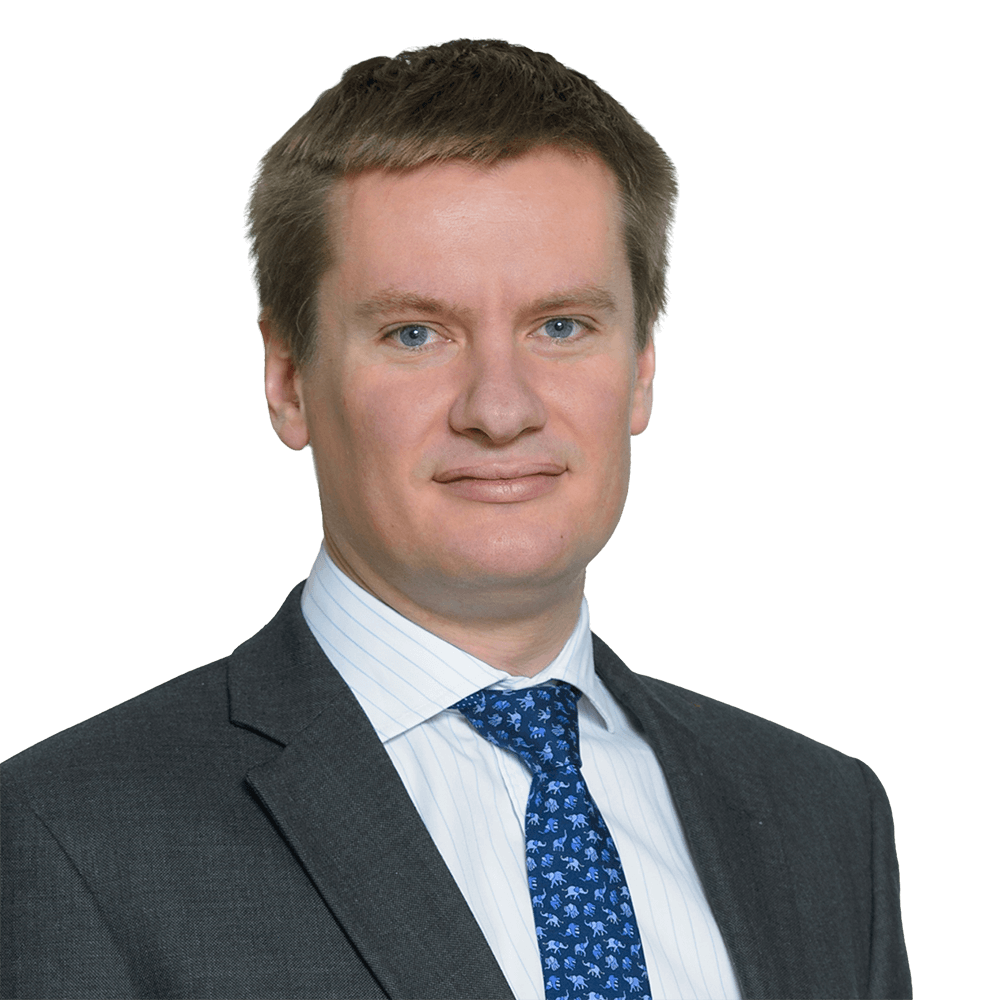CJEU rejects Poland's challenge to the Copyright in the Digital Single Market Directive Article 17
Published on 10th May 2022
CJEU Grand Chamber find the safeguards of the provision strike a fair balance between freedom of expression and information, and the right to intellectual property

On 26 April 2022, the Court of Justice of the European Union (CJEU) issued its judgment in respect of Poland's challenge of Article 17 of Directive (EU) 2019/790 on copyright and related rights in the Digital Single Market (the DSM Directive). The CJEU dismissed Poland's action for annulment of Article 17 in its entirety.
This long-awaited decision is not surprising, as it follows the position previously taken in YouTube (C‑682/18) and Cyando (C‑683/18) and confirms to a large extent the Opinion of Advocate General Saugmandsgaard Øe, but it does provide welcome clarity.
Despite being an unsurprising decision, it is an important judgment with a number of key takeaways:
- The CJEU confirmed that Article 17 is a new specific liability regime applicable to online content-sharing service providers (OCSSPs).
- The monitoring and filtering obligations imposed by Article 17 must be considered legitimate limitations on the exercise of the non-absolute right to freedom and expression.
- Article 17 introduces several procedural safeguards, which protect the right to freedom of expression and information of users, including in cases where OCSSPs erroneously or unjustifiably block lawful content.
- The rule that Member States cannot impose a general monitoring obligation under the auspices of Article 17 was confirmed.
- Finally, the CJEU provided transposition guidance – Member States that have already implemented the DSM Directive will need to reassess whether their national law ensures a proper balance between the rights of users and the rightsholders.
What is Article 17?
The purpose of Article 17 is to increase rightsholders' ability to get paid when their work is accessed, through licence fees, thereby reducing the so-called "value gap". The value gap is the idea that platforms providing access to user generated content (UGC) receive significant economic benefit from unauthorised sharing of copyright-protected content owned by third parties, while the rightsholders themselves receive comparatively little economic benefit.
Reducing the value gap
Article 17 introduces the significant change of placing primary liability on OCSSPs for the upload, by users of their platforms, of copyright-protected works or other protected subject matter (namely content protected by neighbouring rights, such as sound recordings or broadcasts).
Previously, OCSSP platforms were not considered to be making an act of "communication to the public" when they allowed users to upload content. Article 17 changes this – the operating of these platforms is now considered to be an act of communication to the public. In addition, platforms can no longer benefit from the safe harbour exemption provided in Article 14 of the E-Commerce Directive.
An OCSSP now has to either obtain an authorisation (a licence) from the rightsholders concerned to give access to the protected content, or, alternatively, to avoid liability, it will have to demonstrate three cumulative conditions (although not all of these conditions apply to smaller and less well established OCSSPs):
i. it has made best efforts to obtain an authorisation;
ii. it has made best efforts to ensure the unavailability of protected works for which the rightsholders have provided relevant and necessary information;
iii. once notified, it has acted expeditiously to remove or disable access to the works and it has made best efforts to prevent further uploads of notified works.
These provisions, however, do not lead to a general monitoring obligation. The proportionality principle, detailed in the European Commission guidance, is to be taken into account when assessing whether these obligations have been complied with.
Poland's challenge
Poland's referral to the CJEU challenged the legality of Article 17 on the ground that it infringes the right to freedom of expression and information.
Poland claimed that, in practice, in order to comply with these best efforts obligations, OCSSPs must carry out preventative monitoring of all the content that their users wish to upload by applying automatic recognition and filtering tools. This, it said, creates a risk that lawful content could be blocked automatically by algorithms, even before it is made available online.
Limitation on the right to freedom of expression and information
The CJEU acknowledged that the obligations of Article 17 mean that OCSSPs are required to carry out a prior review of content that users wish to upload to the platform (where the OCSSP has received sufficient information or notice from the rightsholder).
In order to carry out such a prior review, OCSSPs will need to, depending on the number of files uploaded and the subject matter in question, use automatic recognition and filtering tools. And, the use of these tools is liable to limit the right to freedom of expression and information. This limitation must therefore be justified and balanced against the competing right to intellectual property (IP) and minimum safeguards must be included to protect against the risk of abuse.
Balancing competing rights and appropriate safeguards
In carrying out this assessment, the CJEU concluded that Article 17 itself contains appropriate safeguards that strike a fair balance between the competing rights. The court held that Article 17(7) is clear and unambiguous that OCSSPs and rightsholders cannot cooperate to prevent works that do not infringe copyright from being uploaded by users.
Moreover, Article 17(9) states that the DSM Directive does not affect legitimate uses of copyright, for example under exceptions or limitations to copyright. Indeed, it went so far as to say that the exceptions and limitations to copyright "confer rights on the users of works". (Exactly what it means for users to have rights was not expanded upon.)
The CJEU held that it clearly followed that measures cannot be taken by OCSSPs to limit the fundamental rights of users who share content that does not infringe copyright. Thus, automatic recognition and filtering tools that might not adequately distinguish between lawful and unlawful content are incompatible with the right to freedom of expression and information.
The right to freedom of expression and information is further protected by the fact that OCSSPs can only incur liability for ensuring that certain content is not available when the rightsholder concerned provides them with the relevant and necessary information with respect to that content. This requirement, coupled with the fact that Article 17 does not impose a general monitoring obligation, provides an additional safeguard as OCSSPs cannot be required to prevent the uploading and making available to the public content that would require independent assessment to be found unlawful in light of the information provided by the rightsholder.
The CJEU further noted that the DSM Directive explicitly contemplates that there will be some cases where making content unavailable can only occur after notification by the rightsholder. OCSSPs should be able to determine that the relevant content is illegal from the rightsholder's notification, without detailed legal examination.
Additional safeguards are also provided by the requirement for OCSSPs to establish redress and complaint mechanisms to identify lawful uses of works that have erroneously or unjustifiably been blocked. The CJEU noted that in transposition Member States must ensure that users have access to out-of-court redress mechanisms.
The CJEU concluded that the liability regime established by Article 17(4) was not only appropriate but also necessary to protect IP rights and that it does not disproportionately restrict the right to freedom of expression and information of users of those services.
Although the CJEU admitted that the provisions of Article 17 do not define the actual measures that service providers must take to meet their obligations, the wording of the provision is intended to allow the obligations imposed to be adapted in the future depending on the circumstances, the development of industry practices, and the availability of different technology. The CJEU acknowledged that such future-proofing is acceptable.
Advice on transposition
Member States had until 7 June 2021 to implement the DSM Directive into their national law. However, as at the date of publication, only 16 of the 27 Member States have done so.
Despite this, the CJEU was clear that Member States must transpose Article 17 in a way that accords with its interpretation of the provision in this case, which allows for a fair balance to struck between the different fundamental rights. This underscores that it is possible that Article 17 could be transposed in a way that does not strike a fair balance and therefore would be in conflict with the fundamental rights or general principles of EU law (for example, the proportionality principle).
Member States that have already transposed Article 17 into national law should carefully consider whether an appropriate balance has been struck, or they might open themselves up to legal challenges in the future.
Osborne Clarke comment
While the decision may be unsurprising, it provides some welcome clarity on the status of Article 17. The CJEU has confirmed that Article 17 itself provides enough safeguards to the right to freedom of expression and information, and appropriately strikes the balance between this fundamental right and the competing fundamental right to IP.
However, the CJEU was clear that it is possible that Article 17 might be transposed in a way that does not strike such a fair balance between the competing rights. As such, this judgment should be read carefully by all Member States – those who have transposed and those who have not.
As for OCSSPs, they will need to take note that the use of automated recognition and filtering tools that block lawful content are incompatible with the right to freedom of expression and information. And, that what amounts to lawful content depends on the application of limitations and exceptions to copyright, which might differ from one Member State to another. This may impact those measures that can technically and practically be put in place. And OCSSPs could potentially rely on these aspects of the CJEU's judgment as a reason why they are not able to put in place more stringent measures.
Lastly, it should be remembered that Article 17 is not being implemented by the UK: the previous EU law on these issues continues to form part of UK law.
This Insight was written with the assistance of Chiara Brayda, Trainee Solicitor






